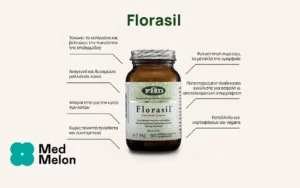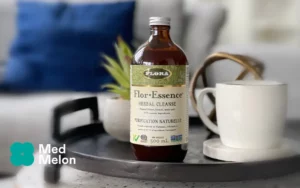Scientific Names:
Althaea officinalis L. [Fam. Malvaceae]
Forms:
Marshmallow, whole root, powdered root, root tea and syrups
Traditional Usage:
– Anti-inflammatory
– Antioxidant
– Breathing Disorders
– Bronchitis
– Catarrh (respiratory mucous)
– Cellular Regeneration
– Cleansing
– Colds and flu
– Cough
– Detoxification
– Digestive Upsets
– Gastritis
– Gastroenteritis
– Immune System
– Laryngitis
– Poultice
– Skin Problems
– Sore Throat
– Urinary Tract Problems
– Wounds
Overview:
The roots of marshmallow, Althaea officinalis L. [Fam. Malvaceae], are rich in mucilage, a complex mixture of polysaccharides that form a soothing gelatinous fiber when water is added. Marshmallow root tea is considered an emollient, expectorant and mild laxative. Marshmallow was traditionally used internally for soothing sore throats, laryngitis and tonsillitis, coughs, dryness of the lungs and digestive upsets. The German Pharmacopoeia recommends marshmallow root tea for treating inflammation of the mucous membranes of the mouth and throat and the associated dry cough. The root tea and syrup are also recommended for treating mild inflammation of the gastrointestinal mucosa. German researchers have found that marshmallow root tea soothes and inhibits mucociliary activity (suppresses coughs) and stimulates phagocytosis (enhances ability of white blood cells to devour invading germs). Studies on irritated mucus membranes have shown that the mucilage of marshmallow binds to buccal membranes and other mucous membranes of the body*. Mucilage, a good source of soluble fibre, is particularly recommended for soothing gastrointestinal diseases. The viscous fiber has several beneficial effects on digestion: 1) it reduces bowel transit time (acts as a mild laxative); 2) it absorbs toxins from the bowel; 3) it increases fecal bulk and dilutes stool materials thereby reducing stool contact with the gastrointestinal mucosa; and 4) it enhances beneficial bacteria within the gastrointestinal tract and provides an excellent substrate for bacterial fermentation. Mucilage, as soluble fibre, also helps to eliminate anaerobic pathogens from the gastrointestinal tract, a function that can significantly help the body to normalize critical hormone balances required for basic health. Marshmallow is also used as a poultice for healing wounds and skin inflammations. In folk medicine, marshmallow tea is also used against abnormal growths of the stomach and to alleviate urinary infections. A related species (M. crispa) has noteworthy activity against abnormal growths.
Active Ingredients:
The roots of marshmallow contain: 5-10% mucilage (levels vary greatly depending upon time of harvest and post-harvest processing). The mucilage is made up of a complex mixture of acidic polysaccharides containing arabinose, glucose, rhamnose, galactose and galacturonic acid. The roots also contain pectin, sugars, asparagines and small amounts of sterols.
Suggested Amount:
Unless otherwise prescribed: The German Commission E recommends using 6 grams of marshmallow root daily, or 10 grams of marshmallow root syrup. The German Standard Licence, however, recommends using 15 grams of root per 150ml of water – so there is a wide range of possible concentrations for making this tea, depending upon the levels of mucilage desired. For treating sore throat and highly irritated mucous membranes, it is advisable to use the higher concentrations. To prepare the infusion: Cold water (ca. 150ml) is poured over 15 grams (1 tablespoonful) of finely chopped marshmallow root and allowed to let stand with frequent stirring for one half hour, and then strained. The German Standard Licence recommends drinking a cup of marshmallow root tea several times per day. It is noted that the tea can be gently warmed before drinking and should be freshly prepared each time. 1 Teaspoon = ca. 3 grams.
Drug Interactions:
As with other concentrated sources of soluble fibre, marshmallow mucilage can interfere with the absorption of other medicines within the digestive tract if they are taken at the same time. As such, take prescription medications at an alternate time to consuming marshmallow tea.
Contraindications:
None known.
Side Effects:
None known.
*Note: It is interesting to note that Althaea officinalis was found to have moderate bioadhesion to epithelial tissue whereas strong adhesive processes were observed with polysaccharides from Fucus vesiculosus and Calendula officinalis. Personally, I find that marshmallow root tea feels more soothing than Calendula tea and smoother than Fucus.
References:
Duke, J. 1997: The Green Pharmacy, The Ultimate Compendium of Natural Remedies from the World’s Foremost Authority on Healing and Herbs. Pp. 53; 104; 119; 181; 187; 207; 479; 491. Rodale Press.
Guarnieri A, Chiarini A, Burnelli S, Amorosa M. 1974. [Mucilage of Althaea officinalis]. Farmaco [Prat]. 1974 Feb; 29(2): 83-91. Italian.
Guevara JM, Chumpitaz J, Valencia E. 1994. [The in vitro action of plants on Vibrio cholerae]. Rev Gastroenterol Peru. 1994 Jan-Apr; 14(1): 27-31. Spanish.
Schmidgall J, Schnetz E, Hensel A. 2000. Evidence for bioadhesive effects of polysaccharides and polysaccharide-containing herbs in an ex vivo bioadhesion assay
on buccal membranes. Planta Med 2000 Feb; 66(1): 48-53.
Wichtl M and NG Bisset (eds). 1994. Althaeae radix – Marshmallow root. In Herbal Drugs and Phyto-pharmaceuticals. CRC Press, Stuttgart, pp. 65-6




